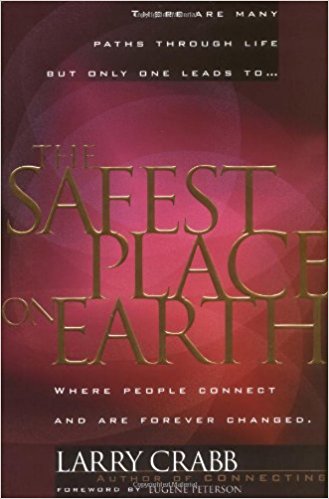The following question comes up once and a while in various forms:
Is it permissible for a baptized boy to be taught by a woman in the church’s Bible School program?
Questions like this often emerge from the heart of a concerned Christian parent whose heart wishes to honor the Lord. I pray and hope that the following guide will be helpful to those seeking an answer to this question.
The question has several elements which much be addressed. They will form the headings of this brief response in the following order: (1) what is the prohibition in 1 Timothy 2:12?, and (2) does baptism make a person an adult?
The Prohibition in 1 Timothy 2:12
Paul writes to Timothy,
I do not permit a woman to teach or to exercise authority over a man; rather, she is to remain quiet. (English Standard Version)
If left alone an argument may be made to the effect that a woman can never instruct nor be in a position of authority over a man —never. This would, however, be stripping the passage from its larger context and thereby generating a dangerously misleading analysis of these words.
Paul’s prohibition is built upon two lines of reasoning: (1) the order of creation, and (2) the profile of the fall. Observe:
For Adam was formed first, then Eve; and Adam was not deceived, but the woman was deceived and became a transgressor. (1 Tim 2:13–14 ESV).[1]
Although some apply this passage to domestic relationships (husband and wife), or to relationships in the world, such as in business (no women bosses), Paul is specifically addressing the “places” of Christian assemblies. He is not addressing all interactions between women and men, Christian or otherwise.
In verse 8, Paul uses the phrase “in every place” (en panti topō) which is a short hand for “in every place of assembly.”[2] Thus, the focus of Paul’s prohibition has quite a limited application —the Christian assembly. This is further made clear by the mention of the males —as opposed to the women— who are to pray in the assembly (v. 8), and the emphasis on godly women as doers of good works (vv. 9-10) and as active learners in the assembly (vv. 11-15).
Perhaps a point of clarification is in order. Paul does base the “headship/respect” principle for married couples on the order of creation (Eph 5:22–33), but with a different focus. It would be inappropriate to argue —based on 1 Timothy 2:11–15 alone— that women are to be silent at home before their husbands, and contradictory to passages that assume women have administrative authority in their own home (1 Tim 5:14), which also includes martial rights and due consideration from the husband (1 Cor 7:4–5).
Thus, the prohibition in this passage addresses the particular setting of the worship assembly. This must be kept in mind.
Before we move forward. I know there are many genuine believers that would cringe at the notion that there are teaching limitations along gender lines within the church assembly. Yet, while I understand some do believe this instruction to be ad hoc —unique— and therefore, not normative, Paul’s argument is built on his apostolic application of Genesis 2:18-25 and 3:1-14 which refer to the order of creation and the order of the fall.[3]
This should never be confused with an emphasis on the superiority of men and the inferiority of women, both are equal image-bearers of God (Gen 1:27; 2:18).[4]
Is Adulthood Bestowed at Baptism?
This is the heart of the question. The New Testament, in no place that I have found, marks baptism as the transitional act which bestows not only forgiveness of sins (Acts 2:38) but also adulthood upon the recipient. If adulthood is bestowed at baptism, then, what of those who are baptized in their 30s or 40s — have these people been simply children up to this point?
I have heard it said before:
If a boy is ready to make the most important decision he will ever make, then should he not be regarded as an adult? Why not?
While the argument appears to have merit, such a view can have disastrous consequences. Let me further my point. Does this also apply to young baptized girls? Are they now adults ready to marry and bear children? Should the newly baptized boy be thrust into church leadership now because he is a “man”? Why not?
This is not New Testament logic on three grounds: (1) it is nowhere mentioned in the NT, (2) baptism is about the “new creation” and forgiveness of sin (Acts 2:38; 2 Cor 5:17), and (3) baptism is about a “new birth” —a sort of spiritual infancy (John 3:3). So the logic of the gospel runs in the opposite direction of the above claim. Baptism is certainly the most important decision a person can ever make, but that by default does not make a person an adult. This is not what the NT teaches. The assertion is an opinion and we must be very careful with opinions.
Still, even in the New Testament world, there were different words used to describe age groups.[5] One key point to observe is that the ancient world held very a different view of children than modern times when it comes to concepts like merit and value, property, rights, etc. Nevertheless, we will survey these words quickly:
- Bréphos means “young” and “fruit of the body” and thus refers to small children/childhood (2 Tim 3:15), newborn infants (1 Pet 2:2), and those within the womb (Luke 1:41, 44).
- The words país (small, little), paidíon (little child) and paidárion (little boy, John 6:9) are bit interconnected. Paidion may refer to someone not yet 7 (Matt 2:11,13–14), which covers are large span of time; whereas, a child from the ages 7-14 would be called pais (Luke 8:51, 54). The “adolescent” (14-21) was called a meirákion but the word is not used in the NT (2 Macc 7:25).
- There is téknon and teknion: These terms generally reflect “origin” (descendent), the early dependent state of children, and those who are figuratively so (téknon: Luke 11:13; Mark 7:27; Phil 2:22). And teknion was a nursery term for “little child” and is often affectionately used for Christians (John 13:33; 1 John 2:12).
Even when Paul speaks to Timothy and speaks of his “youth” (1 Tim 4:12), he is speaking in relative terms. The word (neotes) itself is relative and often associated with a “youthful spirit” and being impetuous[6] and covered a period until the approximate age of 40.[7]
In no instance is there an example from Scripture that a child becomes an adult at the point of baptism, regardless of the important choice they have made.
Finally, let me add the following. Christians are often called upon to become mature or complete (teleios 1 Cor 14:20). Even the church universal is called upon to grow into “mature manhood” (teleios aner) in the Ephesian letter (4:13; cf. Col 1:28, 4:12). What is more to the flavor of NT teaching is that baptism begins a process of spiritual maturity. It is not a commentary on biological maturity (the brain is not fully mature until the mid-twenties), on legal maturity and accountability (nations and cultures differ), nor on the wisdom the church depends on from its mature leaders.
We should never crush the embers of zeal among our youngest believers and disciples. We need to encourage them and give them an environment for their faith to be nurtured and yield its fruit. I would stress, however, that we do not artificially affirm something upon them —like adulthood— that there is no biblical nor social basis to do. Furthermore, we should not sideline our teaching sisters, many of whom are mothers and grandmothers who administer their own homes with children under their authority (Tit 2:4; 1 Tim 5:14).
So Where Do We Go From Here?
I see no scriptural evidence to remove a young baptized boy from a Bible class taught by a Christian woman simply on the merit that the boy is baptized. But, this does not settle the matter in my view.
The Scriptures do not clearly define a line that distinguishes childhood from adulthood. We often use the phrase, “age of accountability.” Again, there is no general consensus. Is age twenty, based on God’s punishment upon the unbelieving Israelites at the precipice of the Land of Promise (Exod 14:29)? If so, then no youth is accountable before that age and, therefore, baptism would be inappropriate.
Yet, there are plenty of references of young people called by the Lord and brought into His service. Samuel’s call in his early teens to service (1 Sam 3). Josiah was eight years old when he began to reign as king (2 Kings 22:1). Mary was certainly “young” (11-13 years old?) when she conceived Jesus by the power of God while betrothed to Joseph (Luke 1). In her oracle, she acknowledges her inclusion in God’s plan of salvation (Luke 1:49). So, it is not a tidy situation to say young people cannot come into God’s plan.
By and large, the conversion excerpts from the Book of Acts narrate responses from believing adults: (1) the Jews on the day of Pentecost (Acts 2), (2) the Samaritan converts (Acts 8), (3) the conversion of Simon the sorcerer (Acts 8), (4) the conversion of the Ethiopian treasurer (Acts 8), (5) the conversion of Saul of Tarsus (Acts 9, 22, 26), (6) the conversion of Cornelius and his household (Acts 10-11), (7) the conversion of Lydia (Acts 16), (8) the conversion of the Philippian jailor (Acts 16), (9) the Athenian converts (Acts 17), (10) the Corinthian converts (Acts 18), and (11) the Ephesian converts (Acts 19).
There may be some wiggle room in the reference to “household” in cases like Acts 11:14 and 16:33-34 to include younger believing members. R. C H. Lenksi, for example, viewed “household” (Grk. oikos) as a reference to Cornelius’ “family” in Acts 11:14 and 16:33-34.[8] In a study on the multi-functional social setting of the household in Luke and Acts, John Elliott notes that the term includes “family and kin,” but the term may also include “personnel and property.”[9] This may then include servants, slaves, and household managers who also responded to the gospel. At any rate, a baptized youth does not an adult member of a Greco-Roman household make.
At the heart of conversion, however, is the need for forgiveness of sin, the capacity for belief and obedience, and commitment towards discipleship. This would exclude the youthfully immature to the infantile of the house. So where do we go from here? Youths who respond to God in baptism are still youths subject to their own parents.
Concluding Thoughts
That being said, we concede that there is tremendous wisdom to maintain consistency in the church’s teaching program. Since there is no “clear-cut” age to gauge adulthood in Scripture, it would seem best for congregations and families to determine for themselves an age where the teaching program of the church exclusively selects male teachers during those transitional years from late middle school through high school. But, it should be clear that this is only a judgment call.
Endnotes
- Unless otherwise stated all Scripture quotations are taken from the English Standard Version of The Holy Bible (Wheaton, IL: Crossway, 2001).
- Everett Ferguson, “Tópos in 1 Timothy 2:8,” ResQ 33.2 (1991): 65–73.
- Bruce K. Waltke, “1 Timothy 2:8-15: Unique or Normative?,” Crux 28.1 (March 1992): 22-27. Repr., CBMW News/Journal of Biblical Manhood and Womanhood 1.4 (Oct 1996): 4-7.
- Bruce K. Waltke and Cathi J. Fredricks, Genesis: A Commentary (Grand Rapids, MI: Zondervan, 2001), 88.
- Albrecht Oepke, “pais…,” TDNT 5:636–39.
- H. G. Liddell, An Intermediate Greek-English Lexicon (1888; repr., Oak Harbor, WA: Logos Research Systems, 1996), 529.
- Wayne Jackson, Before I Die: Paul’s Letters to Timothy and Titus (Stockton, CA: Christian Courier Publications, 2007), 124.
- “He was to tell Cornelius what would save both him and his house (family). It was a matter of saving this household.” R. C. H. Lenski, The Interpretation of the Book of the Acts of the Apostles (Minneapolis, MN: Augsburg, 1961), 443. Later, regarding the Philippian jailor and his house: “The jailor and his family were baptized in the ordinary way by an application of water in the name of the Triune God” (Lenski, Acts of the Apostles, 683).
- John H. Elliott, “Temple Versus Household in Luke-Acts: A Contrast in Social Institutions,” in The Social World of Luke-Acts: Models for Interpretation, ed. Jerome H. Neyrey (1991; repr., Peabody, MA: Hendrickson, 1993), 225. See also, Jovan Payes “Organizing God’s House in 1-2 Timothy and Titus.”











